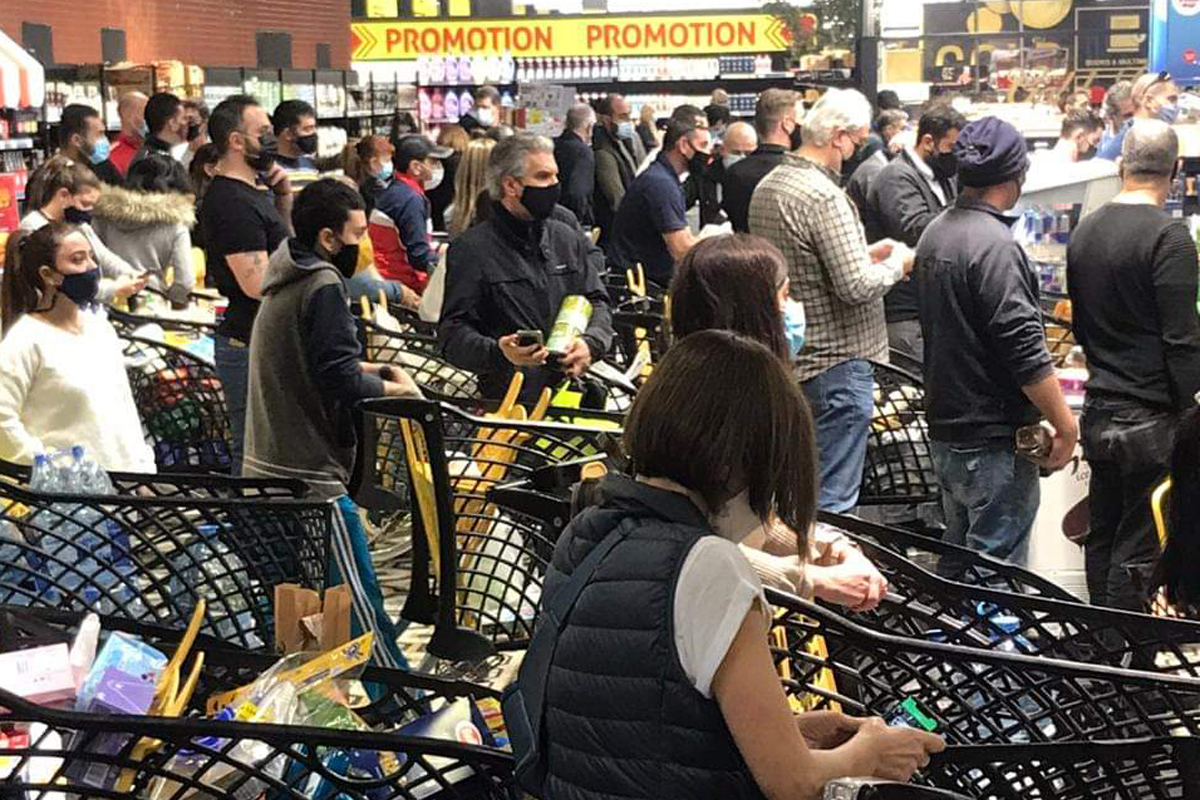Lebanon has declared a general state of emergency that begins on January 14 after registering an unprecedented surge in Covid-19 cases.
A day-time and night-time curfew will be enforced from 5am Thursday until 5am on January 25 and all public and private cars will be banned from the streets.
All public and private institutions and commercial banks will be closed, while supermarkets and restaurants will be allowed to offer delivery services from 5am until 5pm.
As the Higher Defence Council ordered the closure of shops and supermarkets, Lebanon witnessed panic buying with traffic jams and crowded supermarkets on Monday.
The National Social Security Fund, medical and foodstuffs factories, wholesale foodstuff markets, flour mills, bakeries, pharmacies, medical labs, clinics, money exchange and transfer shops, fuel stations and insurance companies will be allowed to operate during certain times of the day.
The airport will remain open but travellers arriving from Addis Ababa, Cairo, Adana, Istanbul and Baghdad will have to be quarantined for a week in hotels on their own expense.
Land and maritime borders will also be closed to all travellers except those carrying a valid transit visa and passenger traffic at the Beirut airport will be slashed to 20 percent of arrivals in January last year.
 Empty shelves at a supermarket after a panic buying in Lebanon
Empty shelves at a supermarket after a panic buying in Lebanon
Lebanon, a country of more than six million, has witnessed a “coronavirus tsunami” that has ravaged hospitals since the beginning of 2021, registering 32,818 new cases in just a week, bringing the tallies to 222,391 cases and 1629 deaths.
Daily infection rates have hovered above 3,000, hitting an all-time high of 5,440 last Friday.
Over the past seven days, it has recorded a 70 percent increase in infections, placing it among the countries currently experiencing one of the world’s steepest virus upticks, according to AFP data. It trails behind Portugal, which has seen a 73 percent increase, Nigeria, with a 77 percent rise, and Ireland, with a 190 percent uptick.
Caretaker Prime Minister Hassan Diab said a “complete, strict and firm closure of the country is necessary to protect the Lebanese from themselves due to the recklessness of a large part of them and to avoid a Lebanese model that is more dangerous than the Italian model”.
Amid disagreements over measures to be taken, caretaker Health Minister Hamad Hassan refused to attend a meeting of a ministerial committee tasked with responding to the Covid-19 pandemic “in order to object to the decision taken by the committee” not to impose a lockdown before the holidays.
Some government-run hospitals have opted to treat some coronavirus patients in cars because they have reached maximum capacity.
 People stand in line for a coronavirus test at a testing centre in the Rafik Hariri University Hospital in Beirut
People stand in line for a coronavirus test at a testing centre in the Rafik Hariri University Hospital in Beirut
Hassan announced Monday that 60 hospitals have refused to cooperate with the ministry’s request to provide ICU beds for Covid-19 patients, withholding a total of 100 ICU beds. He said State Security is investigating the non-compliant hospitals.
Lebanon’s Order of Physicians has appealed to doctors to suspend all non-urgent and routine medical procedures, urging them to focus efforts on emergencies, especially patients infected with Covid-19.
The high tallies come in the wake of the holiday season, in which an estimated 80,000 Lebanese returned to the country ahead of Christmas and New Year’s celebrations.
Since the explosion of Beirut Port on August 4, the public health system has struggled to cope with the growing number of Covid-19 cases.
To provide aid to families suffering from economic hardship during the Covid-19 lockdown, caretaker Finance Minister Ghazi Wazni has ordered LBP75 billion (about $8.6 million at the black-market exchange rate) to be released to the Higher Relief Council.






